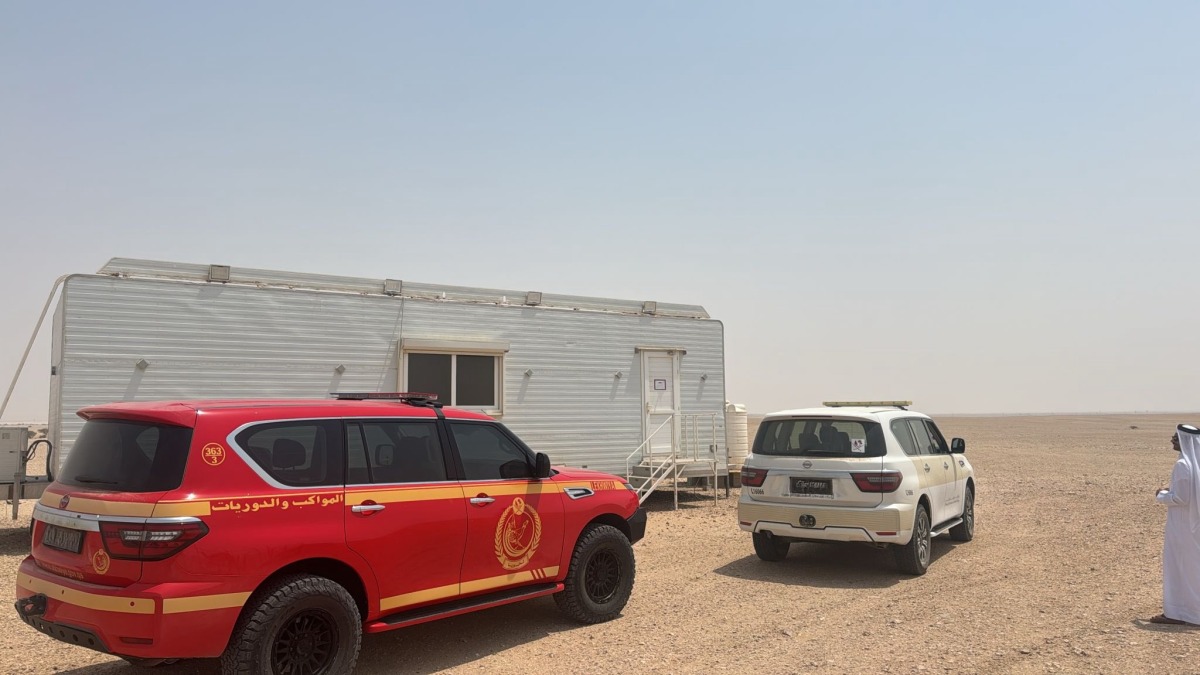The type of violations included unauthorised grazing, illegal dumping of waste in undesignated areas, and setting up camps or structures without proper licences.
Doha: Inspection campaigns play a vital role in creating awareness about the importance of preserving environment and deterring harmful practices in natural reserves and desert areas, while reinforcing efforts to preserve Qatar’s unique terrestrial ecosystems.
This was emphasised during the latest inspection campaign conducted by the Ministry of Environment and Climate Change (MECC) in the southern region of the country.
Assistant Director of the Terrestrial Protection Department at MECC Salim Qadri Al-Yami detailed the types of violations detected during the campaign.
Speaking to Qatar TV recently, he said that these included unauthorised grazing, illegal dumping of waste in undesignated areas, and setting up camps or structures without proper licenses or failing to renew expired permits.
“These inspection campaigns are part of our scheduled operations,” said Al-Yami.
“However, when organised as large-scale efforts with more inspectors on the ground, they become significantly more effective in monitoring and documenting environmental violations—especially in areas frequently visited by the public.”
He stressed that an increased presence of inspectors enhances the campaign’s impact by not only identifying harmful actions but also by discouraging them through visible enforcement.
“Our aim is for these campaigns to serve as a strong deterrent and raise awareness about responsible environmental behaviour,” he noted.
Al-Yami further explained how inspection areas are selected.
The Terrestrial Protection Department is divided into three regional sections: northern, central, and southern.
Each section’s head, along with their inspection teams, determines the target areas in advance, in coordination with the Environmental Security Department.
“The campaigns follow a structured schedule, with different locations within a region covered each week,” he said.
“This ensures that inspections are thorough and that no area is overlooked.”
Beyond enforcement, the MECC seeks to educate the public about the importance of preserving Qatar’s ecosystems.
“Public cooperation is crucial,” Al-Yami added.
“We encourage citizens and residents to report violations and practice environmentally friendly behaviours during outdoor activities, especially in sensitive areas like reserves.”
The ministry also highlighted the critical role that partnerships play in the success of these campaigns.
Coordinated efforts with law enforcement, municipalities, and community organizations have helped streamline operations and amplify the impact of inspections.
The environmental inspection campaign in the southern region is part of a broader national strategy to safeguard Qatar’s biodiversity and ensure compliance with environmental laws.
It aligns with the country’s long-term sustainability goals as outlined in Qatar National Vision 2030.
The MECC, represented by the patrols of the Wildlife Protection Department, in cooperation with the Environmental Security Forces (Lekhwiya), recently conducted an extensive inspection campaign covering several areas in the south of the country, including: Wadi Jalal, Al-Rakba, Mukaynis, Umm Uwayna, Bayda Al-Qa’a, Al-Kara’ana, Umm Al-Jamajim, Al-Sabsab, and Al-Tawar.
The campaign resulted in the detection of several environmental violations in various locations, which were proven to cause direct harm to the natural environment in those areas.
All necessary legal measures were taken against the violators in accordance with the applicable
